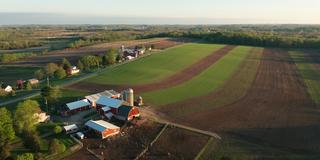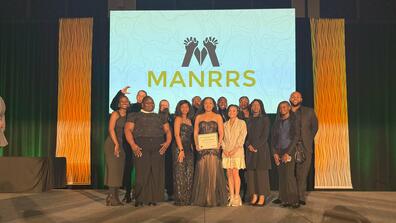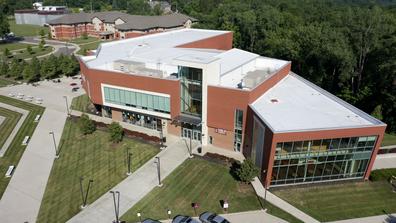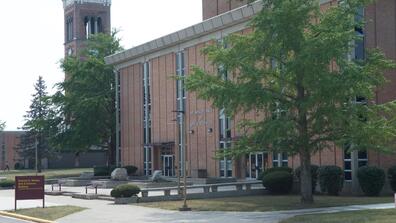Central State University seeks partnership with 20 Ohio and southeastern Michigan farmers

Climate-Smart Commodities Project underway thanks to $5M USDA grant
Central State University has launched efforts to recruit and enroll 20 Ohio and southeastern Michigan farmers to participate in the Partnership for Climate-Smart Commodities Program over the next five years. The agricultural project will be funded with a $5 million grant from the United States Department of Agriculture's Natural Resources Conservation Service announced last November.
"The goal of this partnership with the U.S. Department of Agriculture Natural Resources Conservation Service is to build markets for climate-smart commodities and to invest in America’s climate-smart producers to strengthen U.S. rural and agricultural communities," said project director Ibrahim Katampe, Ph.D., and assistant director of Innovation and Technology Incubation. "It will expand markets for climate-smart beef, fruits, vegetables, and other specialty crops in Ohio and southern Michigan and support farmers with implementing and monitoring climate-smart practices."
Central State University is seeking farmers that will utilize manure as a natural fertilizer and integrate climate-smart agricultural practices for the production of vegetables starting in the fall 2024 through 2028. The grant focuses on recruiting socially disadvantaged farmers to become involved in the project.
"Urban as well as rural farmers are encouraged to be part of the project," said project co-director Cindy Folck, Ph.D., interim associate Central State University Extension administrator.
"The objective is to measure, quantify, and verify the carbon and greenhouse (GHG) benefits associated with these practices and to determine the marketing and economic viability of produce labeled as raised with climate-smart technologies."
Socially disadvantaged farmers and ranchers targeted for the partnership may be a legal entity or joint operation, include the following:
- American Indians or Alaskan Natives
- Asians
- Black or African Americans
- Native Hawaiians or other Pacific Islanders
- Hispanics
For an entity, at least 50 percent ownership in the farm business must be held by socially disadvantaged individuals.
Participating farmers and ranchers must:
- Provide at least 3,000 sq. ft. of plot space for four years
- Provide one plot for manure-applied fertilizer
- Provide one plot for fertilizer regularly used for control plot
- Register their farm, if not already done, with the USDA Farm Service Agency to obtain a farm identification number
- Share historical records for the plot areas for two growing years before the grant
- During the grant period, both plots will be no tilled; cover cropped; and drip irrigated.
The following incentives will be provided to participating farmers:
- Inputs for growing identified vegetable crops (estimated at $3,437.63 per acre. For example, 3,000 sq. ft. would equate to $236.75):
- Seeds/seedlings for three crops during the growing season
- Lime
- Fertilizer for control plot
- Manure-based fertilizer
- Organic pest and plant disease management products
- Drip irrigation
- Mulch
- Cover crop seeds
- Annual incentive based on size of plots calculated from $1,322 per acre. For example, 3,000 sq. ft. would equate $91.05/year.
- Annual incentive for labor costs of $4,848
"The cohort of farmers involved with the research project will be vital to helping identify how climate-smart technologies can be sustainable for a farm," Folck said. "We will keep them posted about the research findings with regular meetings and check-ins to also foster networking among farmers."
Farmers and ranchers who want to learn more about participating can complete our interest form at https://forms.office.com/r/259cEAYdpA.
For more information or questions about the project, please contact:
Dr. Ibrahim Katampe at ikatampe@centralstate.edu
Dr. Cindy Folck at afolck@centralstate.edu
Dr. Robert Korir at rkorir@centralstate.edu


